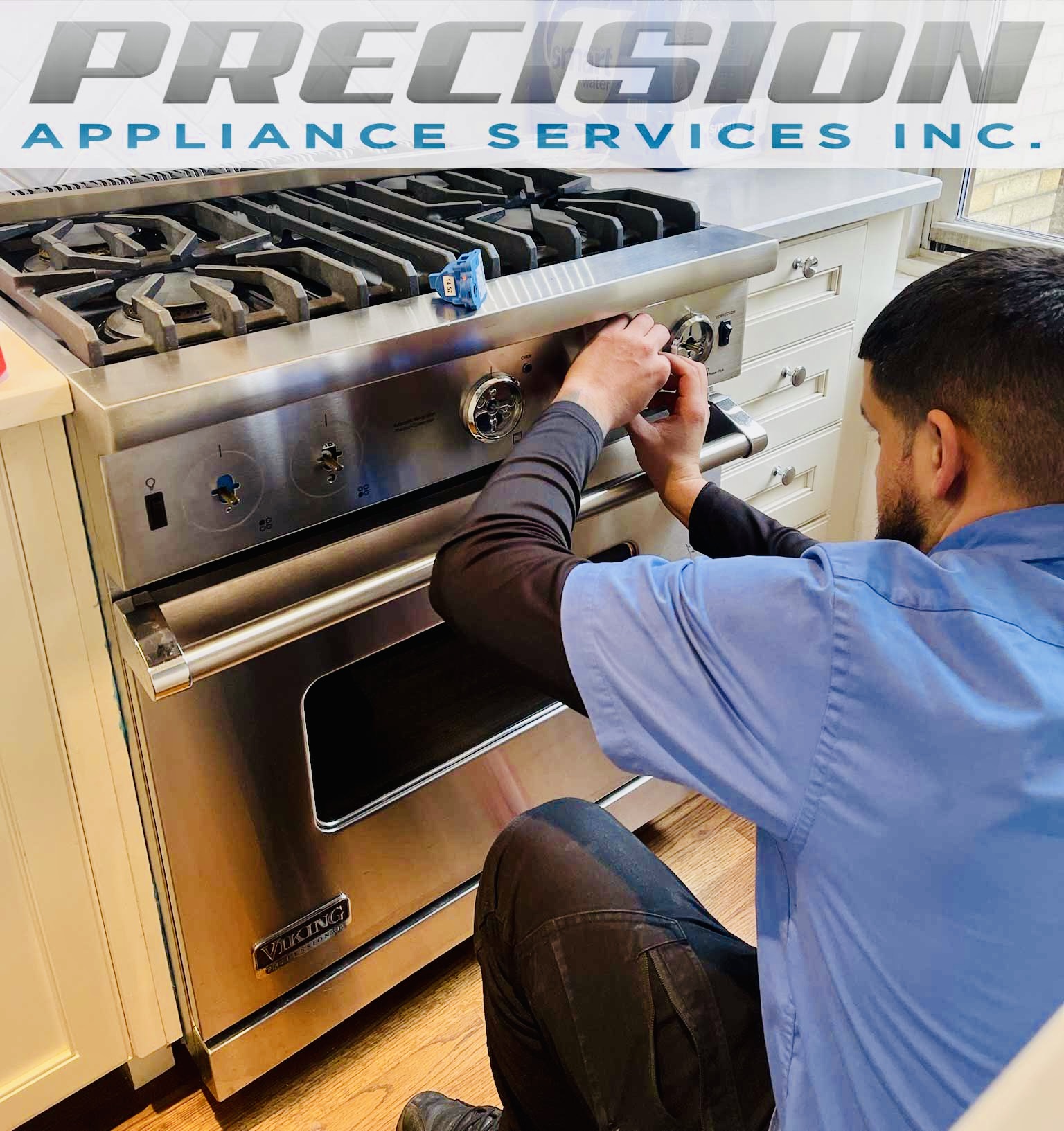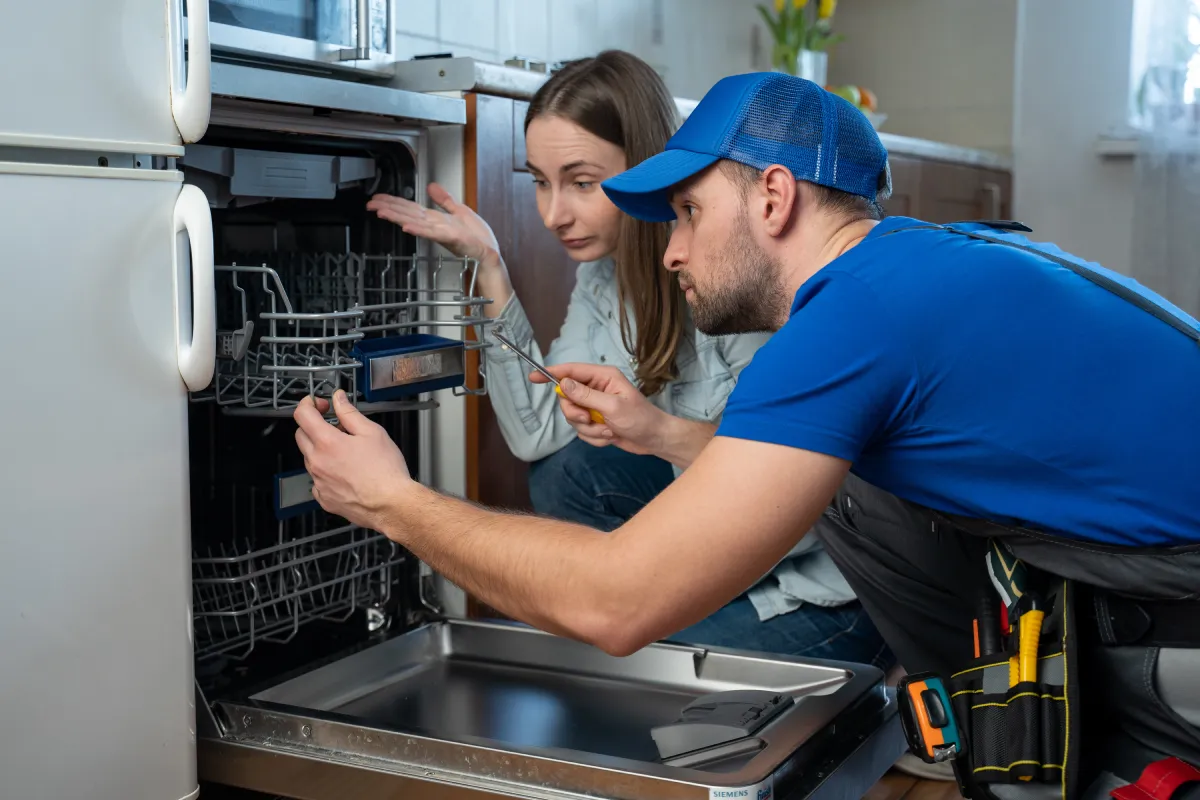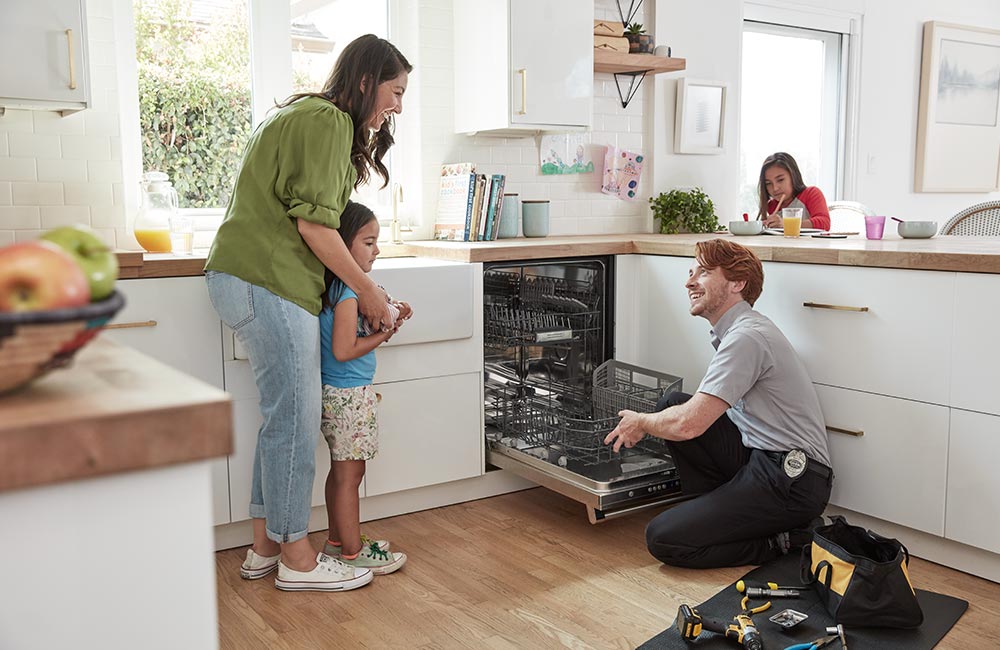The Ultimate Overview to Understanding Appliance Repair Service in the house
When your refrigerator stops cooling or your stove rejects to warm, it can feel overwhelming. Understanding device repair in the house can save you time and money. You'll find out to recognize signs and symptoms, make use of vital devices, and comply with a methodical troubleshooting process. Before you begin, there are crucial security preventative measures you need to take into account. What are the most usual troubles, and how can you fix them? Let's check out the basics.
Usual Device Troubles and Their Symptoms
When your appliances begin acting up, it's vital to recognize the indicators early. Overlooking them can lead to larger concerns and pricey repairs. For instance, if your refrigerator isn't cooling down correctly, you may discover warm areas or condensation developing. This might suggest a falling short compressor or a blocked vent.Your dishwasher may reveal issues via unclean dishes or uncommon sounds throughout cycles. If you hear grinding or clanking, it's time to investigate.A cleaning device that won't rotate or drain pipes can leave you with soaked washing, recommending a clogged up drainpipe or a malfunctioning pump.Lastly, if your oven's temperature level seems off or it takes forever to pre-heat, you could be dealing with a malfunctioning thermostat. By remaining sharp to these symptoms, you can deal with concerns before they escalate right into major fixings.
Crucial Tools for Device Repair Work
When you're tackling device repairs in the house, having the right devices is crucial. Basic hand tools like screwdrivers and pliers will certainly aid you take apart and fix different appliances, while electrical testing gadgets guarantee you're working securely with electrical wiring. Allow's go over what you require to get started on your repair trip.
Basic Hand Devices
Having the right devices is necessary for efficient appliance repair at home. Beginning with a trustworthy screwdriver collection, including both flathead and Phillips kinds, as screws are typical in device setting up. Pliers are also vital; they assist with gripping, turning, and reducing wires or small parts. A set of needle-nose pliers can reach difficult situations quickly. You'll need an excellent flexible wrench for tightening or loosening up nuts and bolts. An utility knife comes in handy for puncturing packaging or insulation. Finally, don't neglect a strong workbench or surface area to securely arrange your tools and parts. With these standard hand tools, you'll be well-prepared to tackle most home appliance repairs that come your means.
Electric Testing Instruments
Along with fundamental hand devices, electrical screening devices play a crucial role in home appliance repair. These devices help you detect electric issues and guarantee devices function securely. A multimeter is essential; it determines voltage, present, and resistance, permitting you to determine issues swiftly. A non-contact voltage tester is an additional must-have, letting you discover live wires without making direct contact, enhancing your safety and security. Secure meters are great for measuring present flow in cords without disconnecting them, saving you effort and time. In addition, circuit testers can quickly inspect if electrical outlets are working effectively. By utilizing these gadgets, you'll simplify your troubleshooting procedure and boost your fixing abilities, making home appliance maintenance a great deal simpler.
Step-by-Step Guide to Diagnosing Home Appliance Issues
When your home appliance breaks down, it can be irritating, but detecting the concern does not need to be overwhelming. You'll learn to recognize usual issues and use efficient fixing techniques. Let's stroll with the steps to get your appliance back in functioning order.
Usual Appliance Problems

Repairing Methods Described

Repairing Significant Kitchen Home Appliances: A Closer Look
Have you ever wondered just how to deal with common issues with your cooking area home appliances? Repairing significant kitchen devices like fridges, stoves, and dish washers can be less complicated than you believe. Begin by identifying the problem-- whether it's a refrigerator not cooling down or a stove that will not heat up. Typically, a simple reset or examining the source of power can fix the issue.For refrigerators, clean the condenser coils and examine the door seals. If your stove's not home heating, Recommended Reading check the home heating aspect and thermostat. Dishwashing machines could simply require a tidy filter or a reset to get them back in activity. Constantly disconnect the appliance before diving into fixings to assure your safety.Don' t fail to remember to get in touch with the customer guidebook for details fixing ideas connected to your model. With a little patience and the right tools, you can with confidence take on appliance repair work and conserve money while doing so!

Troubleshooting Washing Equipments: Tips and Techniques
When your laundry appliances begin acting up, it can feel overwhelming, yet fixing them doesn't have to be a headache. Start by inspecting the power supply. Validate the home appliance is connected in and the electrical outlet is operating. Next off, evaluate the door or cover button; a defective button can stop the maker from operating.For washers, if it's not spinning, examine for unbalanced tons. Rearranging the clothes may fix the issue. If your dryer isn't home heating, clean the lint filter and examine the air vent for blockages.Listen for uncommon sounds; they can show a problem. If your home appliance is dripping, inspect the hoses for cracks or loosened links. Document any error codes presented on digital screens, as they can guide you in determining the issue. Seek advice from the user manual for particular fixing suggestions related to your model.
Security Preventative Measures to Take During Services
Before you begin any appliance repairs, it's necessary to focus on safety and security to protect against crashes or injuries. Unplug the home appliance or transform off the circuit breaker to ensure no power reaches it while you function. Usage insulated devices to minimize the risk of electrical shock. Use security goggles and gloves to protect on your own from sharp sides or debris (Dryer repair Oro Valley Dependable Refrigeration & Appliance Repair Service).Make certain your work area is neat and well-lit, so you can see what you're doing. Maintain children and animals away from the location to avoid interruptions and possible risks. If you're handling gas appliances, be added mindful; look for leaks prior to proceeding.Take your time, and don't rush with repair services. If you feel unsure regarding any type of action, it's better to pause and research than to presume. Adhering to these safety measures will certainly help produce a more secure atmosphere for your do it yourself device repair task
When to Call a Specialist for Help
Just how do you recognize if it's time to call in a professional for device repair services? If you've tried basic troubleshooting without success, it's a clear indicator. For instance, if your device still won't start or shows uncommon noises after resetting it, don't be reluctant to look for professional help.When you discover leakages, smoke, or shedding smells, prioritize safety and call a pro quickly. These issues can result in more significant damage or position risks to your home.Also, if your device is under warranty, getting in touch with a specialist is typically the most effective course. They can ensure that repairs won't void your guarantee, saving you money in the long run.Finally, if you're uncertain or uneasy with complicated repairs, it's important to leave it to the professionals. Bear in mind, taking on complex concerns without the best experience can bring about costly view blunders. Depend on an expert when doubtful!
Frequently Asked Concerns
How Can I Protect Against Device Issues in the Future?
To avoid home appliance problems in the future, you need to do regular maintenance, check for damage, clean filters, and avoid overloading. Remaining proactive will aid prolong their lifespan and maintain them running smoothly.
What Are the Many Typical Do It Yourself Home Appliance Fixing Mistakes?
You might overlook security preventative measures, skip repairing steps, or use inaccurate devices when attempting do it yourself home appliance fixings. Rushing the process or neglecting maker standards can bring about even more significant issues and expensive blunders. Stay client and educated!
Just how Do I Know if a Component Requirements Substitute?
You can tell if a part requires replacement by inspecting for uncommon sounds, leaks, or irregular performance. If the home appliance battles to operate properly or reveals visible damage, it's likely time for a replacement.
Can I Utilize Generic Components for Appliance Fixes?
Yes, you can utilize generic parts for home appliance repairs, however ascertain they're compatible - Dependable Refrigeration & Appliance Repair Service Dryer repair near me. Common components could conserve you cash, however they could affect efficiency or long life, so evaluate your choices thoroughly prior to making a choice
What Warranties Cover Home Appliance Repairs?
The majority of home appliance service warranties cover repair work for manufacturing problems, however they usually exclude damage from misuse. Examine your guarantee terms meticulously, as some may call for making use of certified specialists and original components for protection to continue to be valid.